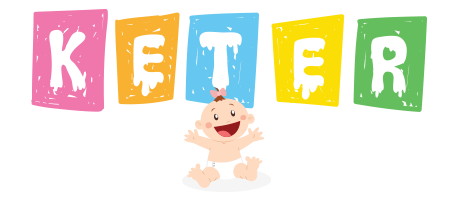
Experiments suggest that children with low self-esteem are prone to it. And as researchers tracked 120 school-age children over time, they found disruptive trends. Children who have received exaggerated praise from their parents are more likely to have negative psychological consequences:
- Kids with low self-esteem at the beginning of the study were less likely to improve.
- Kids with average levels of self-esteem were more likely to get worse.
- And kids with high self-esteem went in a different direction. They were more likely to become narcissistic.
4. Avoid praising kids for achievements that come easily.
As kids get older, they become savvy to the implications. Either
- you’re clueless about easy nature of the task, or
- you have low expectations about a child’s abilities.
How soon will this consciousness appear? It is difficult to know and undoubtedly depends on cultural factors.
For example, if you live in a society where praise is low, you probably will not have the opportunity to learn that praise can be sponsored
But in places like the United States today, where praise is common, children show this understanding in primary school.
5. Praise kids for things they can control — not for being gifted with special abilities.
You’re so smart! You’ve got talent!
This tip seems to be calculated to increase the child's self-confidence and increase motivation. And that's how it could work. Sometimes.
However, research suggests that this type of proposal can be reversed. And for the same reason as we said: children can care about maintaining quality.
Carol Dweck and her colleagues have demonstrated this effect in several experimental studies. When children are praised for their abilities, children begin to be more attentive. They avoid challenges.
Children may also receive a message that people have information or talent or not. As a result, children feel helpless when they make mistakes. What's the point of trying to improve if your mistakes show a lack of information?
For these reasons, they believe that it is best not to praise children for their abilities. Instead, praise them for things that can clearly change, such as efforts or strategies.
- Beware of over-praising kids for doing things they enjoy
It is okay to praise children for what they like to do. But be careful not to overdo it, especially with older children. When you praise children every time they do something they like, you can really reduce their motivation.
For example, Adam probably loves to eat broccoli. But every time he eats broccoli, his mother recommends it to him. Consciously or unconsciously, Adam begins to question his motivation. Is eating broccoli a compliment but a compliment? Adam changes his attitude towards broccoli consumption. It is a great shame, not a pleasure. If the clue ends, Adam loses interest in eating broccoli.
Are Things Really Happening? This is well documented in cases where people receive tangible rewards every time they show a certain behavior (for example, they give a child money every time they eat broccoli). Feedback seems to restore a person's perspective.
Less research shows that social rewards, such as praise, can be of equal value. Brain studies, however, show that social rewards (like praise) and tangible rewards (like money) activate the same areas of the brain. And a food tasting experiment conducted on children found that the proposal claims as a tangible reward that children do not like food.
7. Avoid praise that compares your child to others
First of all, it can be useful to suggest to children that they are better than their peers. Finally, research has shown that such a proposal for social conflict contributes to the motivation of the child and the joy of the task. However, the proposal for social conflict has at least two main problems.
Problem #1: Social-comparison praise is only motivating as long as kids continue to finish first.
If their competitive advantage diminishes, children are likely to lose motivation.
In principle, children who tend to suggest social comparisons are poor.
Consider this experiment on American fourth- and fifth-grade students. The children were given a set of puzzles to complete and find
- social-comparison praise
- mastery praise (i.e., comments about how the child had mastered the task), or
- no praise at all
Then the children performed the second task. This time, they had no clear feedback on how they did it.
How has this uncertainty affected every child's motivation?
It was based on the praise the children had received before. Those who received praise for the social conflict lost motivation. But the children who received praise from the teachers showed more motivation.
Problem #2: Social-comparison praise teaches kids that competitive standing, not mastery, is the goal.
When children decide that they aim for better outcomes than other children, they lack the intrinsic motivation for the task. The work is only interesting if it allows them to prove that they are the best.
Even worse, these children are so full that they maintain their competitive position that they avoid challenges and educational opportunities. Why deal with something new and risk bankruptcy? Proposals for social confrontations of children are not prepared for failure. Instead of learning from their mistakes, these children react with helpless emotions.
